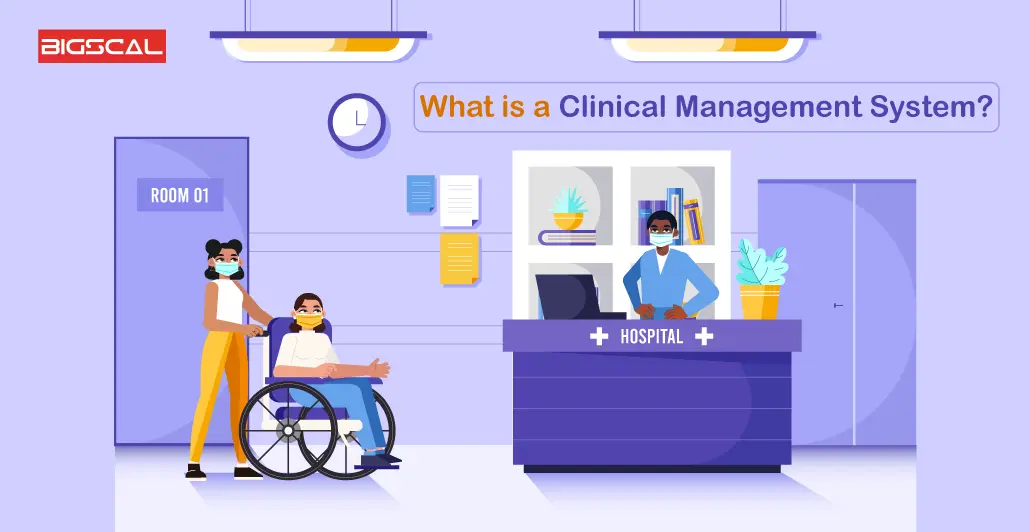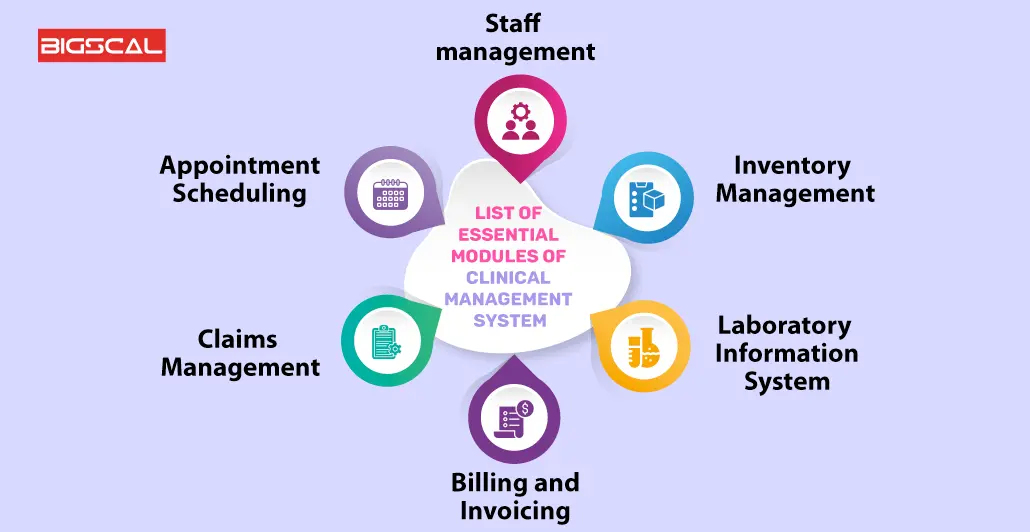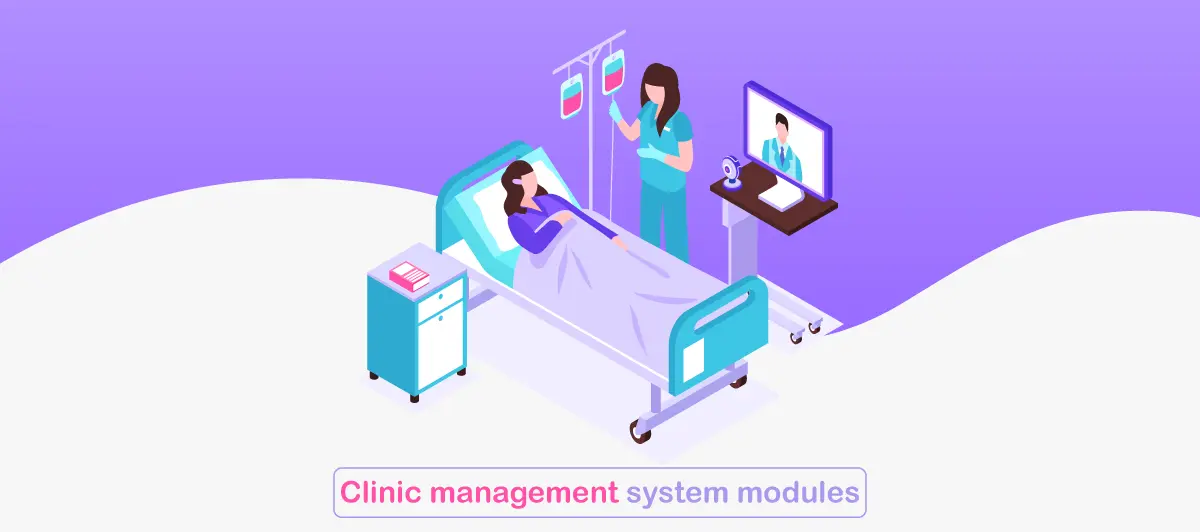A Comprehensive Guide to Clinical Management System Modules
Quick Summary: Explore the intricate world of Clinical Management System Modules with our comprehensive guide. Uncover the essential components shaping efficient healthcare processes, enhancing patient care, and optimizing overall clinical management systems.
Introduction
For many years, the healthcare system worked on piles of records tied with red tape. Providing the best quality care was with hurdles like lost files, missing patient records, communication gaps, and much more. But coming to the present times, the healthcare industry has taken a new face. Its digital transformation story has eliminated all the hurdles healthcare administration faces and patient-centered care and has taken the limelight.
Whether you are a healthcare professional finding ways to provide the best care or an administrator looking for the optimum allocation of resources, clinic management software can do it all. It has poised a new and precise way to deal with the problems in the healthcare sector.
One can create a solid clinic management system with just the help of a popular development company to make the most out of it and avoid all the obstacles that come your way. Before diving deep into clinic management software modules, let’s look closely at this software.
What is a Clinical Management System?

When you want the implementation at every phase to be perfect, certain vital processes need automation with clinic management systems. The clinic management software encompasses all the services that make the work of healthcare providers simpler and easier to do. Hence, it also makes interaction with patients smoother than before.
There is always a huge choice of features present in the clinical modules. But most importantly, these software are to streamline different procedures that align with users’ needs. The clinic management software features list is mainly for ensuring patients have the best experience with the hospital staff. Although each person’s expectations differ, they are fine with this system. Quality and security are two prime areas of concern for the medical industry. It’s also majorly known for constant changes that elevate the efficiency of medical services.
The clinic management system has greatly evolved over the years. The introduction of business expertise, newer technologies, connected devices, and mobile applications are growing to be the main element for this project. Amount of healthcare providers has also increased over the years, providing a wide scope.
As per the features of the system that you choose, it can help deal with various tasks. It can do everything From implementing policies to best communication with patients. But, one of the major concerns for clinical modules is security. All the records in the system have to be preserved and protected. Click here to learn more about how to do what is clinical care.
List of Essential Modules of Clinical Management System

Staff management
The way of handling hospital staff is changing every year. Hence, the employee management module of the clinical management software will help carry out all of these tasks under one roof:
- Scheduling. It is one of the most common features of a staff management module that allows an accurate schedule and ensures that each shift is full. It can also help address the shortage of staff.
- Payroll: It is a module with a secure hospital database for providing employee compensation. Know that access to this module is restricted for editing and altering purposes
- HR document management is a system that helps staff with a secure place to store all the records, descriptions of candidates, and other documents.
- Reminders: These clinical modules can also be set to remind you of important stuff like certificate expiration of employees, verifying qualifications, continuing education, and even vaccination.
Appointment Scheduling
An integrated appointment scheduling module with a clinic management system greatly benefits every patient or provider. Patients can save ample time and money while doctors enjoy their constant shifts. Additionally, hospital equipment is always useful. Here are the advantages that an appointment scheduling software offers:
- Convenience: There are clinical modules that are accessible by both doctors and patients to schedule appointments conveniently. Additionally, the staff in the hospital can have a perfect timetable along with a list of canceled appointments, if any.
- Automation: This module provides a tool to make scheduling appointments easy and automatic. Hence, it cuts down the time employed in booking an appointment. It offers features to synchronize contacts, confirm charges, and much more. The problems faced during booking an appointment are reduced due to this module.
- Reduced costs: All thanks to this exceptional clinical module, which is made in the best way to ensure equal and distributed workload for each worker. Doctors also tend to have fewer gaps between shifts, saving hospitals a lot of money. Now they don’t have to pay extra to the doctor’s when they sit idle.
- Patient satisfaction: The appointment management module of the clinic management system helps patients choose the best time for them. Patients who find making a call problematic can use interfaces like web access or mobile apps. It can be a good choice for people with speech issues.
Claims Management
A claim management module will help manage claims through a single system. It is software that helps cut down claim management costs and improve services for customers and partners. Here are the top reasons behind any healthcare business integrating a claim management system:
- Enhanced accuracy: By using claim management solutions in the working procedure, providers can easily and deeply verify claims accurately. Hence, it contains accurate information before the invoice or any refund.
- Improved analytics: This clinical module can boost productivity and optimize the claims process by conducting a real data analysis.
- Predictability: This module can help predict whether the claims will be accepted. Hence, it could help save time and money.
Billing and Invoicing
In the healthcare industry, getting paid for your services is a multiple-step process by different people. And to your surprise, you cannot shorten this process. But you can, thankfully, accelerate the process by making the billing process automatic through the billing system. Many healthcare institutions have separate billing software; others have it as part of electronic health records.
This medical billing module helps healthcare providers get immediate access to any bill or claim. Additionally, through these systems, a person can easily see a statement sent to the provider and check the account status. Here are some advantages of billing systems for the healthcare sector:
- Better control: Having clinical modules for billing in a clinic management system can help them automate payments and start the claiming process whenever necessary.
- Less paperwork: The medical billing system ensures invoices and looks after insurance claims without keeping records on paper.
- Medical coding: It is a system with a set of medical codes that are standard for streamlining the procedure and eliminating errors.
Laboratory Information System (LIS)
The laboratory management module must ensure the lab test occurs smoothly. It does everything from receiving, processing and storing different samples daily. The primary purpose of this module is to enhance the effectiveness of the lab procedure by introducing automation to manual processes. Here are the features that these clinical modules possess:
- Storage management: It is a module that helps visualize laboratory stocks to locate samples placed in the freezer without any hassle.
- Sample management: It is a feature that allows managing laboratory tests throughout the lifespan from origin to supply chain.
- Billing: The nature of laboratory services is diverse; the billing system is a separate component along with its coding subsystem.
- Reporting: The modules of the laboratory management system can help generate reports regarding the steps in progress, such as collecting and processing samples, consuming reagents, and much more.
Inventory Management
Management of the supply chain in the healthcare sector includes everything from collecting and consuming resources to managing supplies and delivering services to the users. Here are some of the main benefits that a healthcare provider can seek through a robust clinic management system features:
- Optimized costs: Inventory management software helps improve supply chain planning and predict excessive inventory levels. This module allows hospitals to optimize their assets and remove the cash.
- Improved safety: This module provides better transparency to prevent goods from entering the supply chain and eliminate the chances of treatment errors.
Need assistance with clinical management modules? Let Bigscal help you.
Navigating clinical management can be complex, but with Bigscal’s expertise, you’re in capable hands. Our comprehensive clinical management modules streamline processes, ensuring efficient and accurate healthcare operations. From patient data management to scheduling and reporting, we’ve got you everything. Bigscal offers tailored solutions, adapting to the unique needs of your healthcare facility.
Trust us to enhance your clinical workflows, improve patient care, and simplify administrative tasks. Let our cutting-edge technology empower your team. For unparalleled assistance with clinical management modules, partner with Bigscal—the solution you can rely on for a healthier tomorrow.
Conclusion
This guide explores the important world of clinical management system modules. These factors are not just technologies but the heartbeat of effective healthcare. Clinical modules are critical to improving patient care and streamlining operations from patient records to appointments, billing, and beyond. The adoption of these tools ensures a smooth and well-organized healthcare journey. Remember, this module isn’t just about data but about better-living and healthier communities. As we conclude, note that improvements in healthcare are driven by these modules, creating a future of optimal care for all.
FAQ
What exactly are Clinical Management System Modules?
Clinical management system modules are modules or combinations of components within modules in a healthcare software system designed to facilitate various medical interventions These modules include patient information management, appointment scheduling, and electronic health records.
How do Clinical Management System Modules benefit healthcare providers?
These modules increase efficiency by automating processes, ensuring accurate record keeping, and facilitating seamless communication between healthcare professionals Improve patient care, improve efficiency is easier, and improves health care delivery.
Can a Clinical Management System be customized to meet specific needs?
Yes, clinical systems often provide optional procedures. Healthcare providers can tailor the modules to their specific needs, ensuring that the system aligns with their specific workflow and meets the specific needs of their business.
Are these modules secure, considering the sensitive nature of healthcare data?
Security is a top priority in Clinical Management Systems. These clinical modules must employ robust measures such as encryption, access controls, and compliance with data protection regulations to ensure the confidentiality and integrity of patient information
How do Clinical Management System Modules adapt to emerging trends in healthcare technology?
These modules are designed to be flexible and adaptable. With advancements in healthcare technology, modules can be updated to incorporate new features, integrate emerging technologies, and stay in sync with the evolving landscape of healthcare practices and regulations.







